Hopscotch Translation’s One Year Anniversary

This week, Hopscotch Translation turns one year old! To celebrate, we’ve asked a group of literary translators to reflect on works in translation they have loved, that were translated from a language that they don’t themselves know.
THE PROMPT:
In a paragraph or two, tell us about a book or oeuvre that was written in a language unfamiliar to you, yet with which you’ve come to feel a close connection thanks to the work of its translator(s). What is it about the language of the translation that you find especially compelling? In other words, we would love for you to reflect on a work in translation, the work of a particular translator, etc., which is important to you as a translator, but which is translated from (or who translates from) a language that you yourself do not know or translate!
THE RESPONSES

David Bellos
Borislav Pekić, The Apology and the Last Days, translated from Serbian by Bojan Mišić
The doyen of modern Yugoslav literature, Borislav Pekić (1930-1992), lived in London for many years (1971-1992), but has had virtually no readers in the Anglosphere. This is probably due to the atrocious quality of the translation of his tragi-comic riff on Plato, The Apology and The Last Days. This short novel purports to be the last testament of Andrija Gavrilović, a simple-minded lifeguard from Novi Slankamen, incarcerated in Munich for murdering his West German employer, who was the one man Andrija had saved from drowning in the river during the German occupation of Yugoslavia. At the time, the rescued swimmer was SS Standartenführer Erich von Richter, so Andrija had had to take refuge in Germany once the communist resistance came to town. But now, the former Nazi is a civilian by the name of Huber. To keep his past identity hidden, he employs Andrija to look after his swimming pool. Huber has a heart attack and falls into the water, but circumstantial evidence has led to Andrija being convicted of his murder. The lifelong lifeguard wants to be buried in Serbia; his best chance is to be seen not as a former collaborator, but as an avenger of war-time crimes. But he won’t yield to the temptation of lying. In the prison library, he comes across a German translation of Plato’s dialogue. He gets hooked by the story of Socrates’ trial and so he writes his own “Apology”. Andrija has to cope with the Yugoslav consul’s clumsy attempts to use his case as part of the broader aim to extract reparations from the Bundesrepublik and to resist his German lawyer’s bid for leniency on grounds that the “murderer” was a Balkan primitive in thrall to the Code of Lek Dukagjin (he views Albania and Serbia as the same thing).
Andrija reads Plato in an old German translation. Pekić supplies the quotations in Andrija’s imaginary Serbian translation of a language he knows not very well—the German expressions Andrija uses are all incorrect in some way. He does not write Serbian very well either—he is a villager of little education and less reading. His knowledge of Hungarian, spoken by one of his friends, is so poor as to produce spelling mistakes in common phrases like “good day” (jo nápat is spelled “yo nappot”) and “nothing” (nincs comes out as Ninch).
That’s why Mišić’s clunky English translation is so perfect. To begin with, he transliterates whatever the Serbian word for “certified lifeguard” is into “sworn lifeguard”. A sentence like “What do you want, considering my pay check?” (p. 31), said by the rival lifeguard Zemba, must correspond to an expression that French would express as Que voulez-vous? J’ai ma feuille de paie, or in other words: “What do you expect? I’m paid for the job”. “She, of course, got insulted” (p. 62) stands for “Naturally, she took offense”. Similar instances of translationese are legion. But when Andrija finds his photograph in the newspapers and declares it was no joke being “amongst the ministers and prelates” (p. 84), I begin to wonder. Is that a measure of Andrija’s submission to the orthodox culture of Serbia, in which prelates are big shots akin to government officials? Or is it that the Serbian word for “prelate” is also a generic term for a big shot? I don’t know, and I quite like that.
It surely takes art to simulate in English the linguistic approximations of a wise idiot wading through a mush of elementary Hungarian, ungrammatical German and Basic Serbian. That’s one reason why The Apology and the Last Days is so funny. It is also sad as it recasts the Catch-22 of Socrates’ last days, where speaking the truth is to speak out of turn, in the context of European political history of the mid-twentieth century. It’s an unpretentious work of moral philosophy enhanced by recourse to black humour and language games.
So it does not matter to me whether Bojan Mišić created his language-effects skilfully or carelessly, through art or through ignorance. The effect is what matters, and it is wonderful. Translators take note!
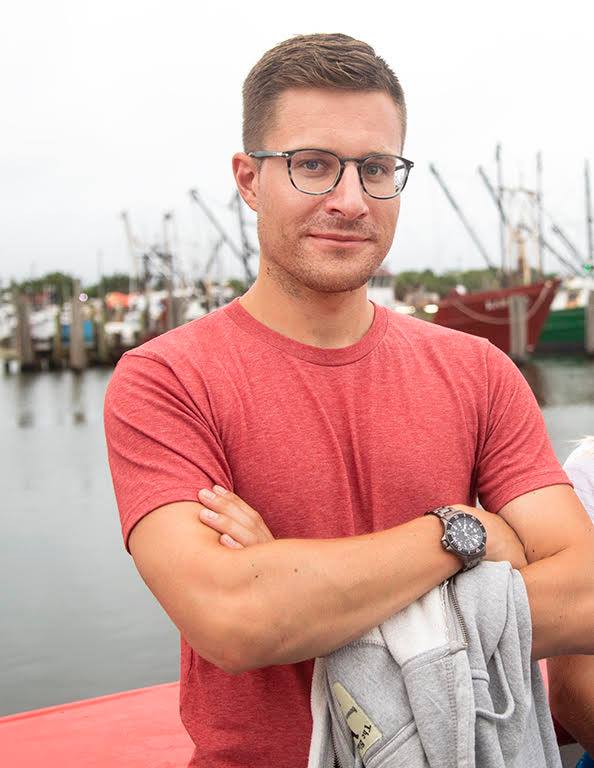
Sean Gasper Bye
Maria Stepanova, In Memory of Memory, translated from Russian by Sasha Dugdale
I’m cheating slightly, because I do know Russian—but I read it so painfully slowly that I stick to Russian literature in English. And thank goodness, because that led me to read Sasha Dugdale’s incredible translation of In Memory of Memory by Maria Stepanova.
Stepanova’s book begins with sorting through the possessions of her recently deceased aunt, pulling out photos, letters, mementoes, newspaper clippings. This sets her on a mental journey back through the generations of her Russian Jewish family as they rode through the seemingly constant upheaval of Russia’s twentieth century. She also takes us on abundant asides and tangents about life, art and the nature of memory.
While Stepanova’s book was marketed for Anglo readers as fiction, to me it was a very identifiably Eastern European style of combined memoir and essay. It meanders between personal memories, family stories and intellectual reflections, all punctuated with often haunting photos.
Stepanova weaves complex, forgotten or half-remembered family histories, reconstructing the lives of her immediate ancestors, ordinary people shaped by history more than shaping it, and she shows how the past shines through into the present. Stepanova laments how the dead are left with no claim over their possessions and laughs about how memory can mislead us.
This book, like a lot of Eastern European literature, is loosely structured and shies away from narrative tension. So what keeps a reader coming back is the power of the writing—the beauty of the prose, the excitement of the ideas expressed, the sheer under-the-skin pleasure of reading a master at work.
In other words a book like this simply couldn’t work in English without an excellent translation. Dugdale knocks it out of the park. Stepanova and Dugdale are both poets, and I often think that poets make the best prose writers. It’s not a flashy translation—Dugdale has no need to resort to verbal acrobatics and pyrotechnics when every sentence is so carefully balanced, every word in perfect rhythm. I know translators sometimes look down their noses at the word “craft,” but this type of consistent, exquisite refinement is exactly what that word calls to mind for me.
Dugdale and Stepanova were rightly showered with praise for this book. As a translator, I find it an important illustration of how a challenging work, unconventional by Anglo standards, can in translation achieve success and true artistic excellence. And for me as a reader, In Memory of Memory is also a reminder of the ways we’re haunted by history: how in a place like Eastern Europe (to paraphrase Faulkner), the past isn’t dead—it’s not even past.
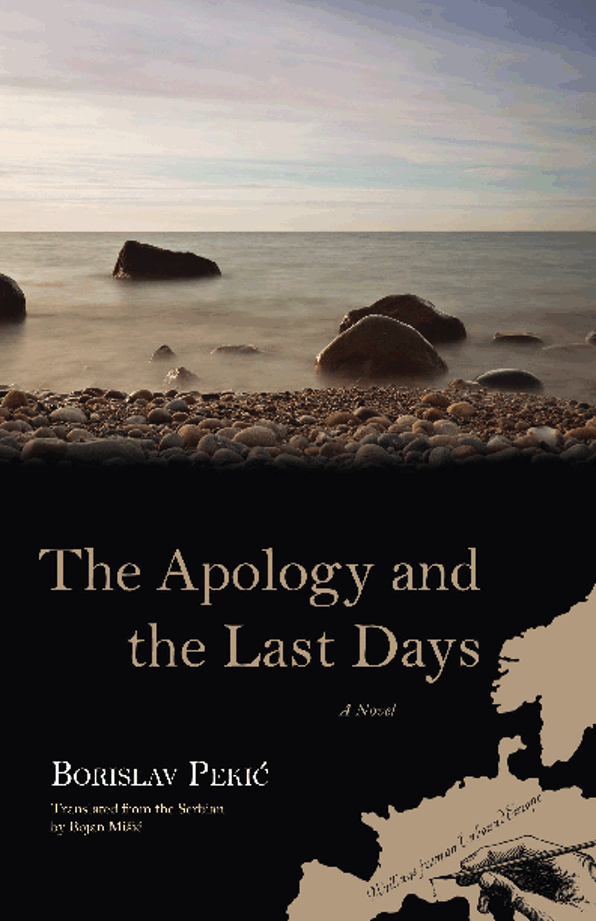
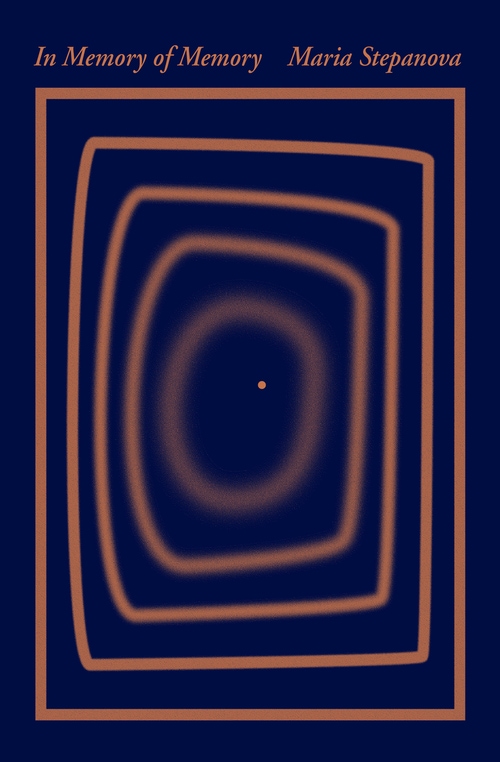

Vincent Kling
The poetry of Miklós Radnóti, as translated from Hungarian by various translators
Dateline Budapest, suitably. James Joyce taught me my one word of Hungarian—reading that Leopold Bloom’s father was Rudolf Virag from Hungary, I thought “virag” must mean “flower,” and when I saw the word on a store window in Budapest with blossoms inside, I crowed jubilantly but silently, as if I’d deciphered the Rosetta Stone. I’ve learned about four more words in the meantime, not quite enough for me to read the great poet Miklós Radnóti (1909-1944); so bless his various translators for allowing this magnificent voice to sound in English.
Radnóti grew up in a wealthy family and was a skilled, even memorable poet until about 1938. The growing violence elevated his work to the status of immortality. His eclogues might change your life. Starting with a commission on the basis of his classical education to translate one of Virgil’s eclogues, the exercise galvanized him into writing a whole set of his own between 1938 and 1944. Like so many poets of the last century (Yeats, Eliot, Pound, Auden, Frost), Radnóti fused traditions of pastoral expression with urgently contemporary agonies of horror and fear, but also of compassion and redemption within suffering.
His pastorals propelled him into immortality, growing ever more radically passionate until the last one, written in a labor camp, rises to a superb philippic in which the prophet Nahum, who denounced Niniveh, returns to guide the poet—overwhelmed with exhaustion—back to strength and hope. “Come, / let us set forth, summon all the people: bring your wife, / prepare a staff, the wanderer’s good companion, /” (trans. Jack Roberts). The poet was warned by a shepherd in the first eclogue, as they lament the killing of Garcia Lorca, not to trust the warmer air of April; a freeze will come. In the second, a terrified, lonely bomber pilot opens his soul and begs the poet to keep revealing the secrets of the heart. The third calls on the muse in the middle of a smoky café to help him write about love. It is impossible to overpraise the seventh, written in that same labor camp as a love letter to his wife—but also to his tortured fellow inmates; in it, he evokes detail after detail of the barbed wire, the dogs, the guards, undaunted even though the gathering darkness is making him write blind. The poet’s many callings—as writer, as lover, as chronicler, as revealer of beauty in squalor, as impassioned advocate for humanity on the highest level of Judeo-Christian ethics—combine here to enact in a single utterance all that poetry can achieve.
There’s more; the “postcard” poems Radnóti kept writing on a death march in October of 1944 were in his overcoat pocket when his body was found. “Nine kilometers from here / haystacks, houses burn, / from the meadow margin watch / shaken peasants, silent, smoking. / Into rippling lake waters / steps a tiny shepherd girl / and the ruffled flock / bends, drinks clouds” (trans. Jack Roberts).
I can’t imagine my sense of art, of life, of poetry, of beauty, of hope being as keen without the wonder and greatness of Radnóti; please google him and read everything you can find. Some excellent translators have been at work—I would know nothing by or about him otherwise.

Natasha Lehrer
Yehudah Amichai, Poems of Jerusalem and Love Poems, translated from Hebrew by several translators
In a family of immigrants, languages are part of the fabric of family life. Not, I hasten to add, that I was any kind of polyglot; against the noisy background of my grandparents’ chaotic babel of Yiddish, Hebrew, French and a smattering of Flemish, and my parents’ academic linguistic prowess – my mother had studied Arabic and Hebrew, my father Latin and Greek – I was resolutely monolingual. But I was a precocious reader and shifting between languages and alphabets was a habit acquired young. As a young child I learnt to read – though not to understand – Hebrew, and my mother got a ghoulishly odd pleasure from teaching me to read – though not to understand – ancient Greek. The Greek I soon forgot, but the Hebrew stuck, thanks to the bilingual prayer book I would flick through, bored, on Saturday mornings at synagogue. Backwards and forwards, right to left, left to right, trying to knit a story out of random prayers.
Entering adolescence, I turned against religion, and against its language too, while at school a series of pettily cruel and unimaginative teachers convinced me that I had no gift for languages. As though staking a claim to my brutish monolingualism, at university I studied what is quaintly called ‘English Language and Literature’, a degree which, at the time, included Irish writers in English but not American ones (begging many, many questions, which of course I did not then know to ask).
Through the years, my lop-sided, halting relationship to Hebrew persisted. I read it fluently, with almost no comprehension, though I grew to love the Bible in English, and the journey of its multiple translations into English, with a particular affection for William Tyndale’s, the first to work from the original Hebrew (he was executed for his pains). But it was when I moved to Jerusalem in the wake of the Oslo Accords, a time of unprecedented optimism, that it began to solidify into something new. My boyfriend gave me a book by Yehudah Amichai, Poems of Jerusalem and Love Poems, a bilingual text in Hebrew and English by several different translators, with the corners turned down on the pages of particular verses. The folds made it seem like an origami gift, an unfolding map of this new place we had made our home. I deciphered Amichai’s Hebrew through the English parallel text, my unsophisticated child’s knowledge of ancient Hebrew becoming a bridge to the refreshingly concrete specificity of Amichai’s modern tongue. I began a faltering journey to understanding this new-old language that had always been mine. I never really gained wings in Hebrew, and a later move to France ensured that its place in my brain was taken by French; but I realise now that my induction into the magic of translation has its roots in my childhood, a world that has long since disappeared, with my grandmother’s Yiddish lullabies, my parents’ ease in negotiating different linguistic realms, and my unquestioning acceptance of parallel texts and different alphabets that I didn’t understand but whose existence was the most normal thing in the world.
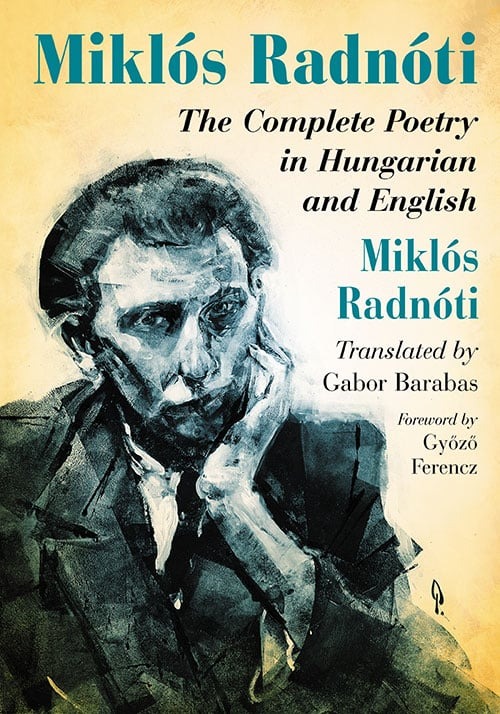


Charlotte Mandell
Hermann Broch, The Death of Virgil, translated from German by Jean Starr Untermeyer
I know no German at all, so I’m very grateful to Jean Starr Untermeyer for translating Hermann Broch’s The Death of Virgil into such beautiful English—her translation has a rhythm and flow to it that makes it almost dreamlike at times; it’s like a long prose poem that you don’t want to end. It’s such a long book but her words carry you along, as if on a river, rising and ebbing, with a powerful momentum that’s hard to resist. She seems to inhabit the voice of the narrator so that Virgil comes startlingly to life, as if he were someone you knew long ago, or had met in a dream. As a translator, I know how difficult it is to capture the narrator’s voice and convey it in a convincing way, so I have some idea of the challenges Untermeyer faced, especially since there are so many shifts in register throughout the book, from reminiscence to political dialogue to dream to visionary passages and then back again to the historical present. Narrative rhythm is equally difficult to carry over from one language to the next, and Untermeyer does a masterful job of making the English both poetic and musical. It’s a book I can open anywhere and be drawn in by the language alone. And for that to be true of a translation is one of the marks of a truly great translator.

Emma Ramadan
Clarice Lispector, Água Viva, translated from Portuguese by Stefan Tobler
In those days when we share with a new romantic interest our favorite books, the books we feel most speak to who we are, the books that communicate the parts of us we feel most urgent for our partners to know about us, I share Água Viva by Clarice Lispector, translated from Portuguese by Stefan Tobler, a brief jolt of a book about what it’s like to be alive, or something. Lispector is one of those writers who is impossible to take sentence by sentence. This book begs to be devoured in a single sitting so that it can wash over you, seep into you, and then suddenly it hits you: ah yes, this is what it’s like to be alive (or something). She speaks in mood, in essence, in emotion, in insight that stammers out through the words on the page. Reading Lispector isn’t about plot or character, it’s about finding out something real—about yourself, about the world, about what literature can do. One person I shared the book with turned to me: It doesn’t speak to me. The sentences on the page don’t make sense, don’t add up to a story. Lispector is for the feelers, not the thinkers, for those who navigate the world by groping our way through the dark, as opposed to those who sit and wait for the light to be switched on. And so imagine translating her. Imagine translating the words on the page knowing those words don’t add up to a plot point or a personality trait, but a general resonance, a block in a building mystery. To know that any given sentence taken on its own risks reading as nonsense—but that taken together, all the nonsense pulses in a given direction. And to be able to read Água Viva and feel exactly that resonance, that mystery that is somehow achingly familiar, is a testament to Stefan Tobler’s genius not only as a translator, not only as a reader of Lispector, but as a feeler, as someone alive to language and all its force.
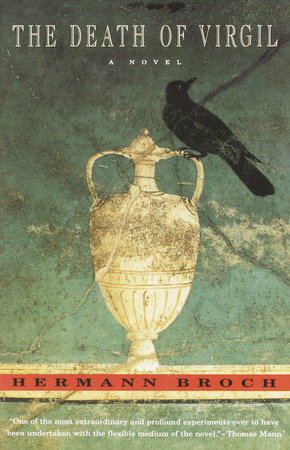
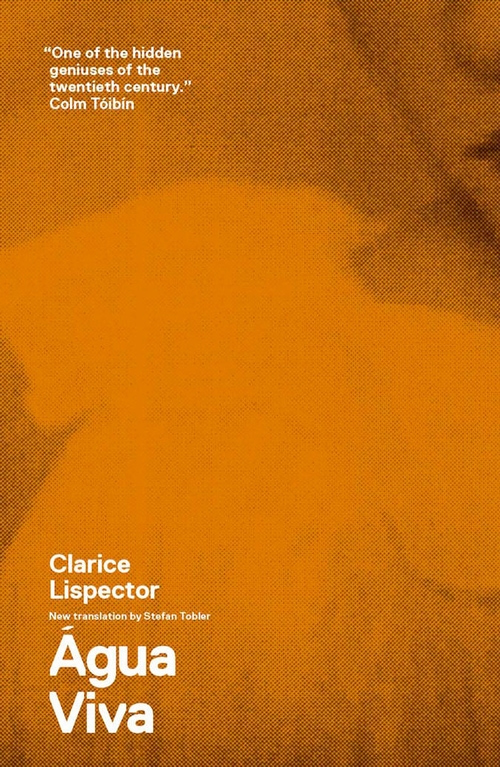

Liz Rose
Tanella Boni, The Future Has an Appointment with the Dawn, translated from French by Todd Fredson
If not for translation, the echoes of Tanella Boni’s lyricism would not reverberate in my pen each time I set out to write. I wouldn’t know “the whole story / from the first syllable of dawn / until the center of this violent spiral / that is calling to us” (26). This brilliant artist/scholar from Côte d’Ivoire writes in French, and while I do not read French, I do read Todd Fredson writing Tanella Boni. Fredson’s English translations craft a captivating spacetime, in which the entirety of the past and future erupts in the present dawn. When I enter these poems, I am jettisoned into the colors and contours of a particular landscape and enveloped in a salient critique of those “slumbering in the aisles of power / subscribing to an edition of history / that traces its circle around the same umbilicus” (39).
Time and again, I return to Boni’s first full-length poetry collection in English, The Future has an Appointment with the Dawn (University of Nebraska Press, 2018), and I am drawn in by the poems Todd Fredson has crafted. The English edition of this poetic work grows language, destroys linearity, holds the simultaneity of beauty and violence, and bears witness to the instability of it all. The gift of translation is this dance between languages, rhythms, and sounds; the creative art of the translator inspired by the source text; the utter newness of Fredson’s English that somehow finds resonance with Boni’s French.
All too often, the translator’s task is said to diverge from that of the poet. But Todd Fredson is a poet, and translation is an act of creative writing gifted to us via this poet’s labor. The Future sings out this truth, from its first lines through its closing question: “How to speak the beauty of the world / when lifes hope / crumbles like yarrow” (70).
The Future holds within its pages the questions that move my work as a writer and as a creature of this destructive and tragically gorgeous world. When utter despair creeps under my skin, when, at the days end, the violence of empire leaves little room for hope, I find in this collection an affirmation of the task at hand: “the poet must wed these visions / of the dying world / and the living water that keep the hearts beating” (6).
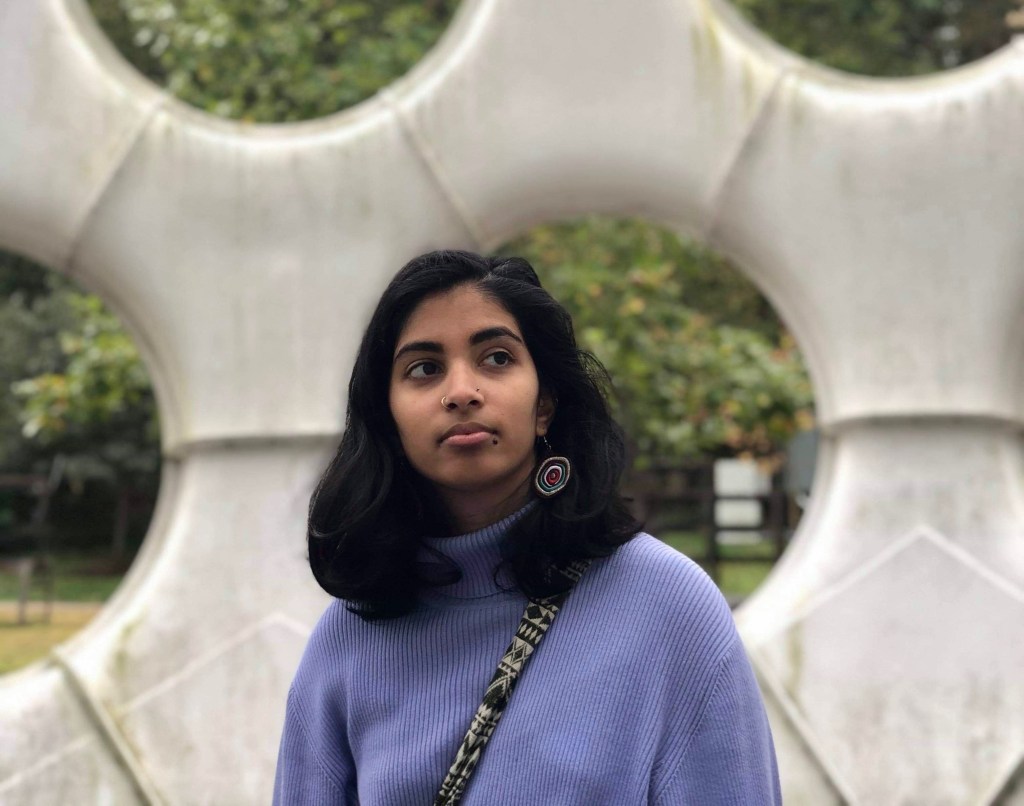
Vasantha Sambamurti
Yan Ge, Strange Beasts of China, translated from Chinese by Jeremy Tiang
As a French translator, I was riveted by Jeremy Tiang’s English translation of Yan Ge’s Strange Beasts of China from the Chinese. The language is attentive to central questions of the text and guides us as readers to grapple with them as well. Namely, what are the stakes of knowing and articulating what one knows? Who articulates and who exists in obscurity?
Our introduction to the text is through an enigmatic, unnamed narrator, a troubled writer and zoology student on a quest to investigate the many strange and varied beasts of Yong’An city. The language crisply and carefully accentuates the distinctions of each beast while seamlessly uniting them in a shared story of loss, dispossession, and need. There are, for example, the sorrowful beasts; as their name suggests, they are sorrowful by nature. But their pathology has a touch of open-hearted whimsy: “They love cauliflower and mung beans, vanilla ice cream and tangerine pudding. They fear trains, bitter gourd and satellite TV.” There’s almost a delight in learning about the strange characteristics of sorrowful beasts—however, delight is the last thing they can allow themselves to feel. Within their pathology, laughter means pain. A smile spells death. This knowledge creates specific boundaries by which a sorrowful beast can live. But it is also crucial to their survival.
Once a beast’s story is told, they continue to languish in their reality, while their storyteller can move on. They are both reviled and romanticized. The narrator herself struggles with this throughout the book, making the following comment on impasse beasts, a marginalized community: “No one but an impoverished fiction writer who only ever publishes in literary journals would write a word about them, but even so she’d gloss over the beasts themselves in favor of their symbolic value.” There’s a complex self-referentiality here that’s both knowingly humorous and devastating to read. What is the complicity of the writer as witness? Every writer—and translator—always wonders.
There are several moments when the narrator reflects on the culpability of her own witness, discouraged by her “shameful profession of a novelist.” She loses trust in her professor, and even confronts him, saying “Stop pretending you’re so innocent.” Later, when the narrator reflects on the beauty and goodness of certain girls on campus, the professor eerily re-invokes the remark, saying, “Not one of them is innocent.”
Some beasts are man-made, their pathologies lab-created. Some beasts are shaped by a pathologically unjust environment—the injustice perpetrated by feigned ignorance. In a world where no knowledge can be trusted, this is all the reader knows: Strange Beasts of China is a deftly translated, many-pronged story with a singular beating heart, the cry of all beasts, human and otherwise.


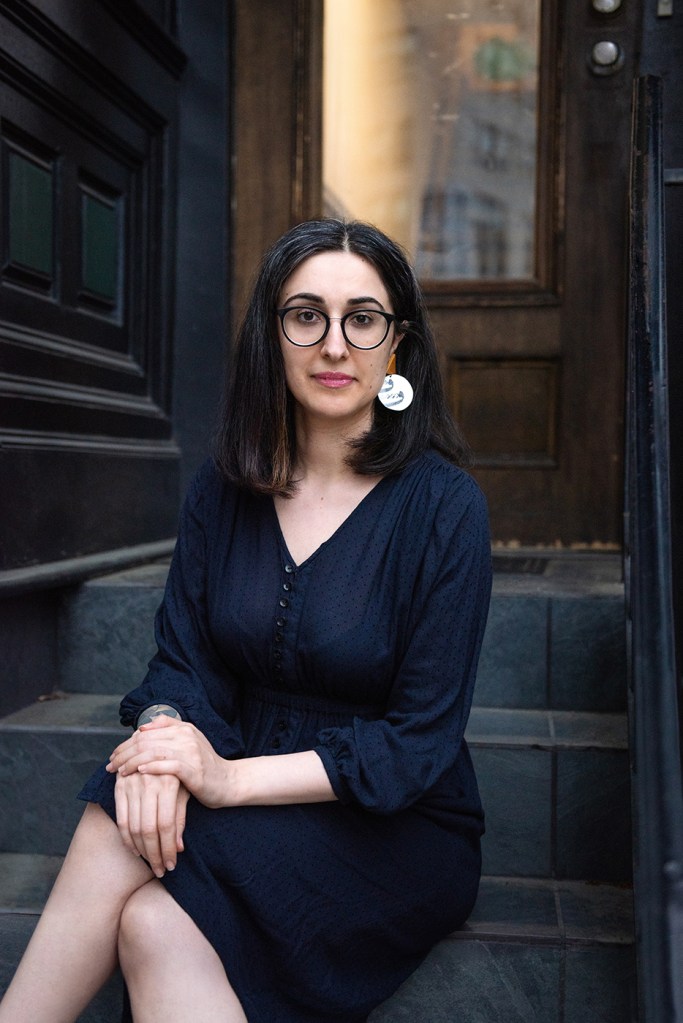
Parisa Saranj
Mark Twain, Adventures of Huckleberry Finn, translated from English by Najaf Daryabandari
Iranians read a lot of translation. For readers, translators are household names. Their works are critiqued and judged before the texts they have translated. For me, growing up in 1990s Iran meant reading as many works of classic and modern French and Russian literature as my father’s library could hold. But it wasn’t until I read the work of Najaf Daryabandari that I learned why translation is a celebrated art for us.
My father, who had decided I was ready for Mark Twain’s Adventures of Huckleberry Finn, pulled out a yellow book from the cabinet in his bookcase where he kept newspaper-covered books (read: banned books) along with a volume of his favorite family saga, Summer 1914 by Roger Martin du Gard, translated into Persian from the novel sequence The Thibaults.
The world of Huck Finn was unlike anything I had imagined or encountered in any book to that day. Yet, the way he thought, saw his world and spoke did not seem strange at all. How was that even possible? The answer lay in the magic of Najaf Daryabandari’s translation.
A self-taught translator with no academic education, Daryabandari translated from English when everyone else was translating from French, Spanish or Russian. First by watching American movies played in theaters of his native Abadan in southern Iran and then by interacting with foreign employees of oil companies, he perfected his English. Hemingway’s Farewell to Arms was his first book translation when he was twenty-three years old. It landed him in the prison of the Shah whose oppressive regime cracked down on any intellectuals that threatened his legitimacy. From there a long career spanning six decades began. A versatile translator who introduced the works of literary giants such as Hemingway, Faulkner, Mark Twain, and E.L Doctorow to Iranian readers, Daryabandari was also known for translating nonfiction work such as Bertrand Russell’s A History of Western Philosophy and Power: A New Social Analysis. With his wife he even co-wrote Iran’s most comprehensive cookbook, From Garlic to Onion, a veritable A to Z of cooking.
When I read Adventures of Huckleberry Finn as a teenager, I thought my attraction to Daryabandari’s translation was his deep understanding of the source language, but as I grew older and read more of his work including The Liveliest Art by Arthur Knight, and his mastery ignited my love of pursuing a career in literary translation, I discovered two more reasons for his brilliance. Najaf Daryabandari was an excellent writer and an extraordinary editor. There is plenty of evidence, especially personal accounts of journalists who interviewed him and colleagues who watched him work, to prove his obsession with what he called “inventing a language.” Translation for him was a constant search and manipulation of language that without changing the original meaning or ridiculing his native Persian gave readers the opportunity to read something authentic yet familiar.

Jeremy Tiang
Jayant Kaikini, No Presents Please, translated from Kannada by Tejaswini Niranjana
Many fiction translations perform a sort of magic trick: we hear the characters speak in one language, while understanding that they are actually using another. With Jayant Kaikini’s No Presents Please, this disjunction is present in the original – this collection of stories is written in Kannada but set in Mumbai, a city of many other languages. As Tejaswini Niranjana explains in her translator’s note, “the writing is also trying to deal with a situation where the characters are not speaking Kannada although their dialogue is being reported to us in the language.”
As befits such a multifarious text, Niranjana’s translation is alive with flair and fluidity. Sandals are referred to by the Hindi word “chappal,” tenement buildings by the Marathi “chawl.” Characters punctuate their speech with exclamations of “arre” and use distinctly Indian English phrasings such as “coming right away” to mean “I’ll be right there.” At one point, a man “danced with rage” on hearing that his horse had been stolen. “He filed a complaint at the police station. When they asked him what color the horse was, he couldn’t remember and said ‘horse color.'” The blunt immediacy of that response gives it delicious comic verve; “horse-colored” wouldn’t work nearly as well. Did the translator land on this because of the Kannada original, or through referencing the “hybrid Hindi-Urdu-Dakhani speech that is the cultural vernacular of Bombay,” or simply because this would be the phrase in her variety of Indian English? I have no way of knowing, but the end result – to my ear, at least – works brilliantly.
The vividness of this translation conjures up a Mumbai bursting at the seams with all manner of life, from “terrible cats” to “the lakhs of faces one saw every day,” a heterogeneous space of jostling voices. Niranjana points out that “one cannot be a representative of these ‘riff-raff’ migrants who are the majority of Jayant’s characters because they are not a unified linguistic constituency.” Rather than seeking to flatten these differences, she embraces Mumbai’s hybridity, and the resulting book is a delectable feast of variety.

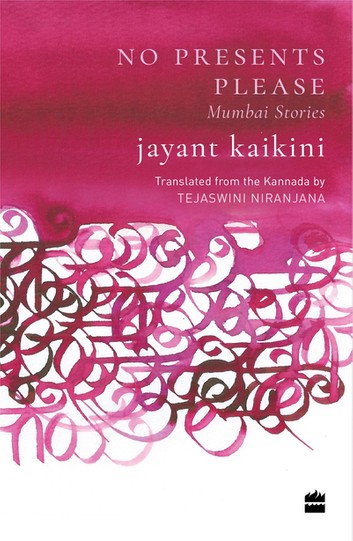

Alyson Waters
Franz Kafka, “In the Penal Colony,” translated from German by Willa and Edwin Muir
Imagine if you will a young girl, thirteen years old, in middle school in the late 1960s. She’s got stringy dirty blonde hair, a chipped front tooth from a bicycle accident (head over heels, or head over wheels…), and a crossed right eye behind very à la mode cat-eye glasses.
This girl—a brand-new teenager—has friends, though note that none of them is “popular.” She gets good grades. She is loved—nay, adored—at home. Basically, then, she is not (yet—that is for another story) unhappy.
She is, however, shy with most of her peers, so during lunch hour, instead of going to the cafeteria, and during her study periods, instead of doing schoolwork, she goes—with permission—to the middle school library. This library—organized by the Dewey Decimal System—consists of one large room filled with books related to middle school classes: social studies, biology, history, geography, and so on.
At the back of this “big” room, off to the left, is a room about one-fifth or one-sixth its size. Over the doorway (there is no door, just a sort of archway) of this room is a small, embossed sign, like the one on the principal’s desk, that reads, in red letters on a gray background, FICTION. At the time, it feels to the girl as if this must be a room of shame. Why is it so small? Why is it in the back off to the left (bend sinister)? Why is she always the only one in there? (Thank goodness.)
It is here she begins to read randomly. She has no way of knowing what is “good” or what is “bad” fiction. She doesn’t even know what those two categories mean. In English class, she has read the typical canon for her age in the late ‘60s, and for her “advanced reader” status (very proud). The Old Man and the Sea, The Great Gatsby, To Kill a Mockingbird, The Catcher in the Rye, For Whom the Bell Tolls, various Shakespeare plays (abridged?), a smattering of Emily Dickinson and Robert Frost poems, Animal Farm… All of this reading had been so public: you read, you discussed, you wrote, all for the eyes and ears of teachers and classmates.
And then there was this little “fiction” room. Since she didn’t dare take a book home (what would the librarian think of her choices? her parents?), she came every school day and read, then slipped a small torn off piece of notebook paper into the book to mark the page where she’d left off. When she’d finished one book, she pulled another off the shelf at random.
She doesn’t of course remember, some fifty years later, everything she read in that little room. She mostly remembers titles: What Makes Sammy Run, Tender is the Night, The Assistant, The End of the Affair (is that possible?) Cakes and Ale… None of these books was like the ones she was reading for school. They seemed more complex, more interesting, but that could simply be because she was reading without guidance, at her own pace, contextless, discussionless, teacherless. They were, however, all comprehensible, figure-outable, as she would say to herself after finishing one.
And then…
Drum roll, please…
She came upon the book that changed her forever, that made her fall in love (head over heels) with LITERATURE. It was…
Shhhh…
IN THE PENAL COLONY BY FRANZ KAFKA.
When she took that one off the shelf, she was very, very frightened of being caught with it, even though no one had ever “caught” her with any of the other books. PENAL = PENIS, she thought, obviously. Should she be reading this? Why was it in the school library?
This girl, which was me (which was I, as my mother would say) just reread that story for the first time after five decades. The edition I now own is the fat Shocken Books edition first published in 1948 and translated by Willa and Edwin Muir. I can only assume that this is the edition I read in the late ‘60s (it would have been considered a relatively “new” book then, I suppose). I of course had very little idea of what translation was at the time; just as I never thought about the fact that almost all of the books I read for school and in the fiction room were written by white, male, Anglophone authors, I didn’t think about whether a book was translated. I just read, because that is what I wanted to do. The freedom of random choice was what was remarkable to me. I didn’t think much beyond that. I didn’t even think that my “freedom” was based on what the school had decided was allowable fiction for young people. Freedom as constraint, constraint as freedom.
In any event, I haven’t read other translations of “In the Penal Colony” since, although I know they exist. But rereading the Muir translation, I was transported back to that little room, to my total incomprehension as I daringly started to read, and my even greater incomprehension when I’d finished reading, those 40-odd (and odd!) pages. Although I probably find them a little less incomprehensible now, I’m even more amazed by them, by what Kafka wrote and wrought, and how the Muirs, unbeknownst to me, shoved me gently onto the path I’m on today. If there are later, better translations, I don’t care. Perhaps I should. Perhaps I prefer not to.

Natasha Wimmer
Vladimir Sorokin Day of the Oprichnik, translated from Russian by Jamey Gambrell
Vladimir Sorokin’s Day of the Oprichnik doesn’t need much help to brand itself on the reader’s consciousness. I read it around the time it was published in English, in 2011, and the lurid adrenaline rush of the story is still fresh in my mind. It’s the year 2028 in Moscow and the luxe thug cohorts of a new czar rape, kill, and engage in truly creative debauchery. Still, Jamey Gambrell’s translation might be the most memorable thing about it. It is a spiky wonder, full of neologisms and Russianisms. Its bracing weirdness reminds me a little of the language of Gary Shteyngart’s Absurdistan, another favorite novel of mine that also transplants Russian syntax into English in deliciously extravagant fashion. Here’s a little bit of Gambrell/Sorokin for you:
I put the cold mobilov to my warm, sleepy ear. ‘Komiaga speaking.’
‘The best of health, Andrei Danilovich. Korosylev troubling you, sir.’ The voice of the old clerk from the Ambassadorial Department makes me snap to, and immediately his anxious, mustache-adorned snout appears in the air nearby.
The mingling of 19th-century inflection (“Korosylev troubling you, sir”), futuristic invention (“mobilov”) and lyrical grotesquerie (“mustache-adorned snout”) shoves you straight into Sorokin’s dystopian universe.
A small point: Gambrell (following Sorokin, I imagine), italicizes many words that would not ordinarily be italicized in English. Consider this description of an official oprichnik rape:
Even this succulent work requires a certain seriousness. You have to start and finish by seniority.
The conventions for italics are not the same in different languages, and I often find myself dispensing of them in translation. Still, I am fascinated by the off-kilter flair they give the text here.
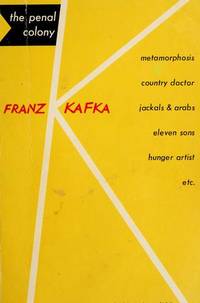
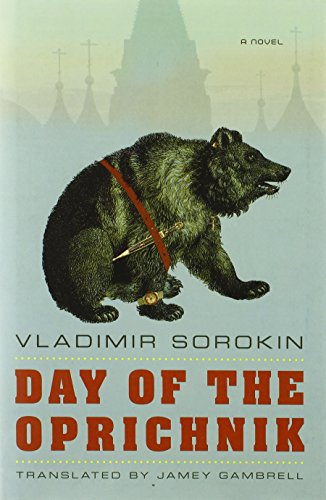

Anam Zafar
Reda Gaudiamo, The Adventures of Na Willa, translated from Indonesian by Ikhda Ayuning Maharsi Degoul and Kate Wakeling
The Adventures of Na Willa is written in Indonesian by Reda Gaudiamo, illustrated by Cecillia Hidayat, and translated into English by Ikhda Ayuning Maharsi Degoul and Kate Wakeling. The writing style makes this small adventure of a book accessible to middle-grade children, but it will appeal to readers of all ages who like to tap into their mischievous side. Told in short interlinking chapters that also do well as standalone mini-stories, readers follow a cheeky girl called Na Willa around the suburbs of Surabaya in Indonesia as she gets into scrapes with her friends and tries to get her own way in a world controlled by adults. Na Willa’s narrative voice is confidently playful and made me laugh out loud more times than I can count. I love how confident she is in expressing her opinion, even when she knows the adults won’t agree with her. It’s something I wasn’t as confident doing as a child, and for that I salute her.
The biggest reason this book means so much to me, though, is its inclusion of meaningful Muslim characters. Na Willa isn’t Muslim, but her friend Farida is. There is a hilarious episode where a curious Na Willa wants to join Farida’s Quran recitation class (which is described in detail), and Na Willa comes wrapped in a bedsheet to cover her head and body. At this point in the book, there’s an adorable picture of the children in the class praying, with Na Willa wearing the sheet. For there to be a whole chapter in the book centred around this Quran class, amongst other chapters about food, trains, and school, means a lot. It means that what these Muslim characters do is treated as just another possible feature of everyday life. As a practising Muslim, I can’t remember a time when I saw the religious side of myself reflected in the books I read as a child and normalised in this way, unless they were straight-out “Islamic books for children”. Maybe it’s because I didn’t read books in translation when I was younger—although that shouldn’t have been a prerequisite. My 12-year-old sister read The Adventures of Na Willa too, and we laughed together afterwards about that chapter in particular. I’m so glad she got to have this moment while she’s still a child.

Jeffrey Zuckerman
Michael Ende, The Neverending Story, translated from German by Ralph Manheim
When I was little, my parents tried to read me bedtime stories. Because I was deaf, whenever I got tired of trying to lipread them as they looked at the book in their hands, I tried to get out of bed and do something more interesting. Eventually they conceded defeat and let me read books myself, just as I’d wanted.
At some point I found Michael Ende’s The Neverending Story at the library. It was the most beautiful book I’d ever seen: twenty-six chapters in red print and green, each one beginning with a huge letter filling up a whole page with ornamentation. The first chapter was A, and the last chapter had a beautiful Z with a fountain at its center and two snakes. It became a book I reread; I even internalized that little phrase on the cover: “Translated by Ralph Manheim.” But that “translated by” didn’t really register for me.
On my third or fourth reread, though, something caught my eye. In Chapter 24, the main character—Bastian—has seen everything and needs to be renewed. He comes across a hand-shaped sign saying “To the House of Change.” This time around, I came to the chapter illumination again, a huge letter X, and saw that little sign in the shape of a hand. But I noticed the words this time. They were wrong: they said “zum Änderhaus.”
It was at that moment that I realized the whole book hadn’t been in English, that it had been something different and now I could read it in English. Did I realize that German was the original language and that Ralph Manheim was the person responsible for this transfiguration? I’m not sure. What I did know was that, just as Bastian was entering the House of Change, where a plant in the form of a motherly woman named Dame Eyola would allow him to forget everything and become himself anew, the whole book itself was becoming a similarly transformative entity, where these seemingly lifeless sheets of dead wood could affect me and open up a space of change I had never before been aware of.
Later on, I would start picking up French, and I would find myself not only reading French books but thinking about translating them, and that would end up becoming my career. I eventually found out that Dame Eyola’s name had originally been Dame Aiuóla and that Ralph Manheim, who had brought about that transformation, had also given Hitler and Céline and Grass and Hesse a voice in English. And I would start grappling with both the wonder and the dangers of translation. But all that came later. All that, as Michael Ende so often said and Ralph Manheim translated in The Neverending Story, “is another story and shall be told another time.” For the moment, there was The Neverending Story, and there was my realization that it had once been Die unendliche Geschichte, a book in a language I could not read and, despite all my hard-won hours of happily reading alone, still cannot.
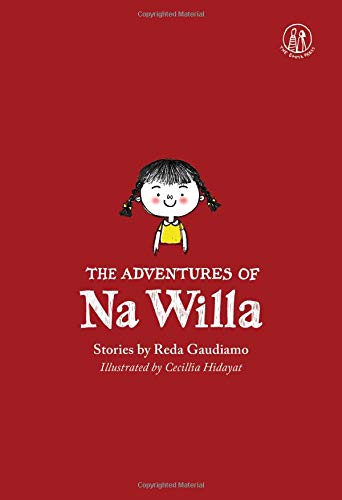
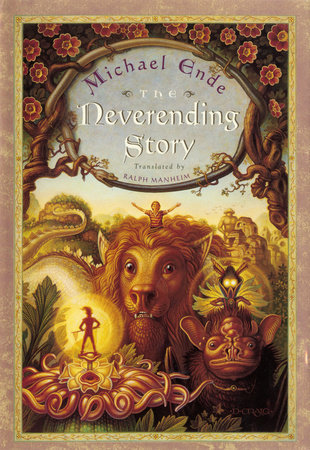
THE CONTRIBUTORS:
David Bellos is Meredith Howland Pyne Professor of French and Comparative Literature at Princeton. He has translated more than thirty books from French and is the author of biographies of Georges Perec, Jacques Tati and Romain Gary. His book about translation, Is That A Fish in Your Ear? has itself been translated into many languages, most recently Japanese, Russian and Farsi.
Sean Gasper Bye is a translator of Polish literature, most recently Foucault in Warsaw by Remigiusz Ryziński, Ellis Island: A People’s History by Małgorzata Szejnert, for which he received an NEA Translation Fellowship, and The King of Warsaw by Szczepan Twardoch, which was awarded the EBRD Literary Prize. A native of Bucks County, he studied at the University of London and worked for five years at the Polish Cultural Institute New York. He now lives in Philadelphia and translates full-time.
Vincent Kling is a professor of German and comparative literature at La Salle University. He has published translations of works by Gert Jonke, Heimito von Doderer, Hugo von Hofmannsthal, Gerhard Fritsch, Werner Kofler, and Aglaja Veteranyi. His translation of Veteranyi’s novel Why the Child Is Cooking in the Polenta was awarded the Schlegel-Tieck Prize in 2013. New York Review of Books published his translation of Doderer’s The Strudlhof Steps in 2021.
Natasha Lehrer is a prize-winning writer, translator and editor. Her long form journalism and book reviews have appeared in the Guardian, the Observer, the Times Literary Supplement, The Nation, Haaretz, and Fantastic Man, among others, and she is literary editor of the Jewish Quarterly. She has contributed to several books, including a chapter on France in Looking for an Enemy, 8 Essays on Antisemitism, edited by Jo Glanville (Norton, 2022). The writers she has translated include Nathalie Léger, Chantal Thomas, Vanessa Springora, Victor Segalen, Robert Desnos and Georges Bataille.
Charlotte Mandell has translated over forty books, including Compass by Mathias Énard, The Book to Come by Maurice Blanchot, and The Kindly Ones by Jonathan Littell. Her translation of Zone by Mathias Énard received a National Endowment for the Arts Literature Fellowship in 2010. She lives in the Hudson Valley with her husband, the poet Robert Kelly.
Emma Ramadan is a literary translator based in Providence, RI, where she also co-owns Riffraff bookstore and bar. Her recent translations include Kamel Daoud’s Zabor, or the Psalms and Abdellah Taïa’s A Country for Dying.
Liz Rose is a literary translator and PhD student in Comparative Literature and Literary Theory at the University of Pennsylvania, where their scholarship centers the intersections of translation, queer and trans theories, and transnational American studies. Their work has appeared in Raspa Magazine, The Poetry Project, and Qui Parle, among other places.
Vasantha Sambamurti is a poet, prose writer, and translator completing an M.F.A. at the University of Arkansas Program in Creative Writing and Translation. They are a senior editor at Transition Magazine. A Pushcart Prize and Best of the Net nominee, their work appears in Northwest Review, Portland Review, Exchanges: Journal of Literary Translation, Cream City Review, the minnesota review and elsewhere.
Parisa Saranj was born in Isfahan, Iran. She holds a BA in journalism from the University of Massachusetts Amherst and MFA in Creative Nonfiction Writing from Goucher College. She works as a freelance translator based in Baltimore and is currently completing a memoir of growing up in 1990s Iran. Her translations have appeared in several publications, including Nimrod International Journal, Your Impossible Voice, Ms. Magazine and Consequence.
Jeremy Tiang has translated over twenty books from Chinese, including novels by Yan Ge, Yeng Pway Ngon, Chan Ho-Kei, Lo Yi-Chin, Geling Yan, Zhang Yueran and Shuang Xuetao; his own novel State of Emergency won the Singapore Literature Prize in 2018. He also writes and translates plays. Originally from Singapore, he now lives in Flushing, Queens.
Alyson Waters is a translator of French and francophone literary fiction, art history, and children’s literature. She has been awarded an NEA translation grant, a PEN translation grant, two grants from the Centre national du livre, and was twice winner of the French-American Foundation Translation Prize, for Eric Chevillard’s Prehistoric Times and for Jean Giono’s A King Alone. Her most recent translations are Jean-Patrick Manchette’s No Room at the Morgue, and with her daughter Margot Kerlidou, Claude Ponti’s Blaze and the Castle Cake for Bertha Daye.
Natasha Wimmer is the translator of nine books by Roberto Bolaño, including The Savage Detectives and 2666. Her most recent translations are The Twilight Zone, by Nona Fernández, and Sudden Death, by Álvaro Enrigue.
Anam Zafar translates literature for children and adults, from Arabic and French to English. She won the 2021 Gulf Coast Prize in Translation and was longlisted for the 2021 John Dryden Translation Competition. She volunteers for World Kid Lit and is based in Birmingham, UK. Twitter: @anam_translates; www.anamzafar.com.
Jeffrey Zuckerman is a translator of French, including books by the artists Jean-Michel Basquiat and the Dardenne brothers, the queer writers Jean Genet and Hervé Guibert, and the Mauritian novelists Ananda Devi, Shenaz Patel, and Carl de Souza. A graduate of Yale University, he has been a finalist for the TA First Translation Prize and the French-American Foundation Translation Prize, and has won the French Voices Grand Prize. In 2020 he was named a Chevalier in the Ordre des Arts et des Lettres by the French government.
Originally published on Hopscotch Translation
Tuesday, January 25, 2022

